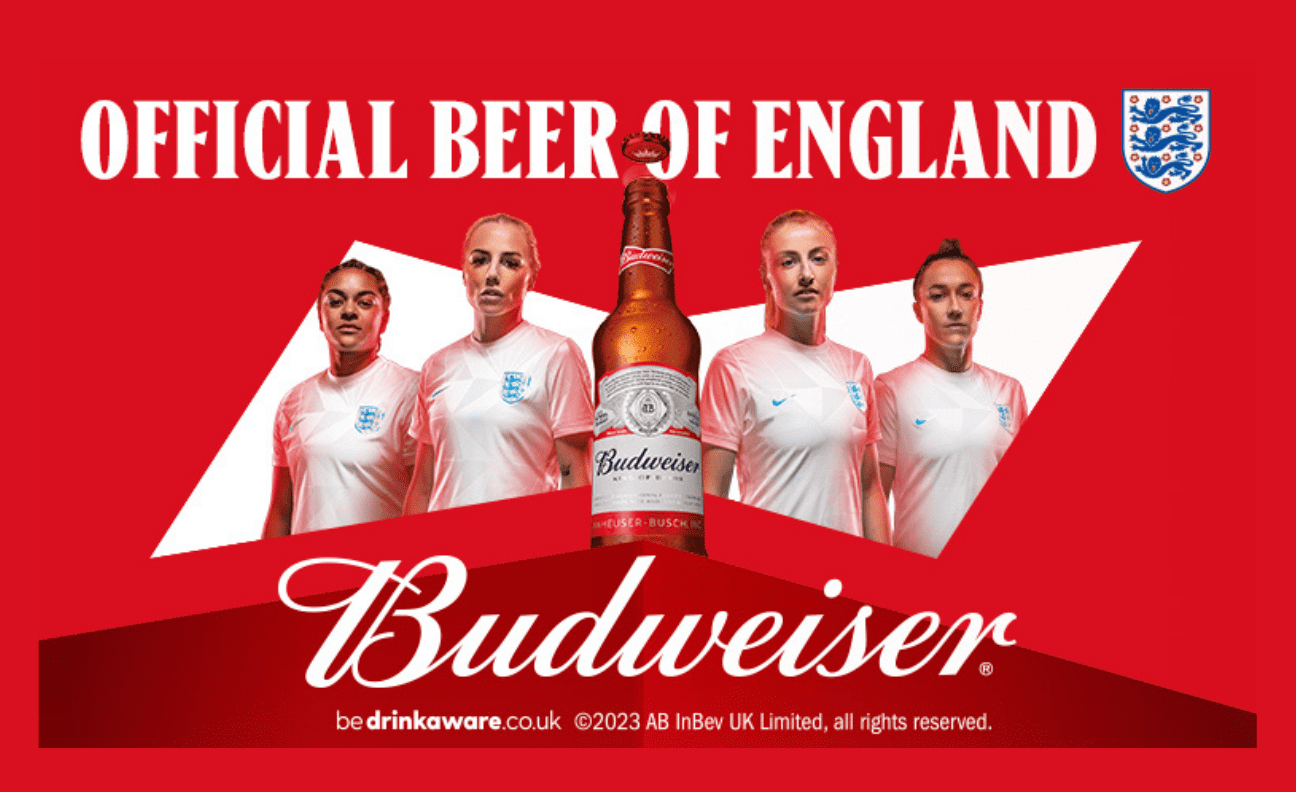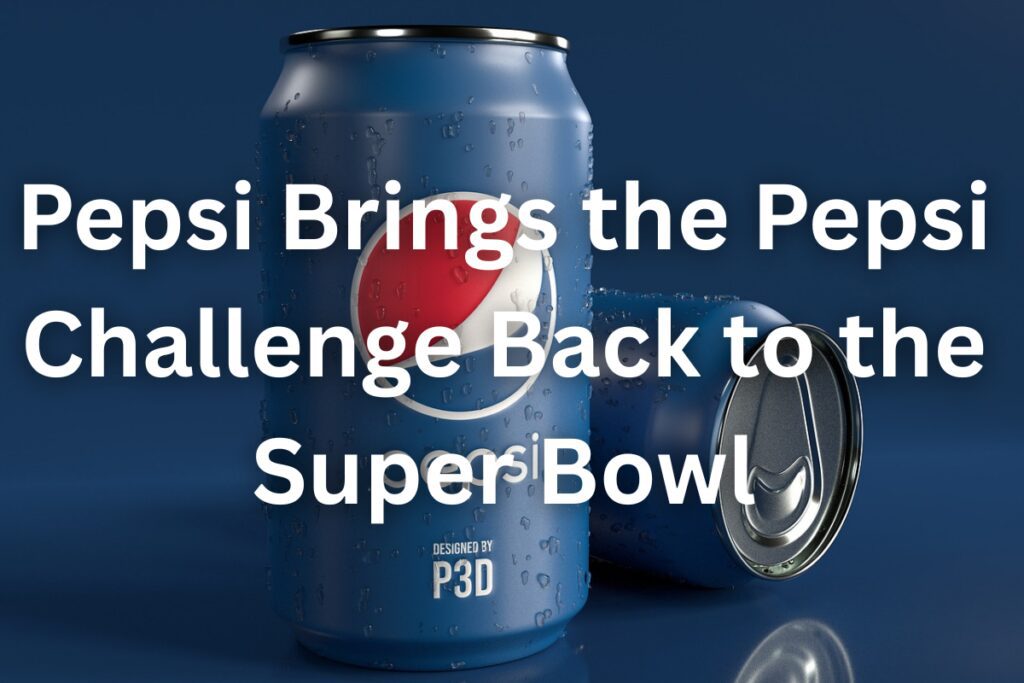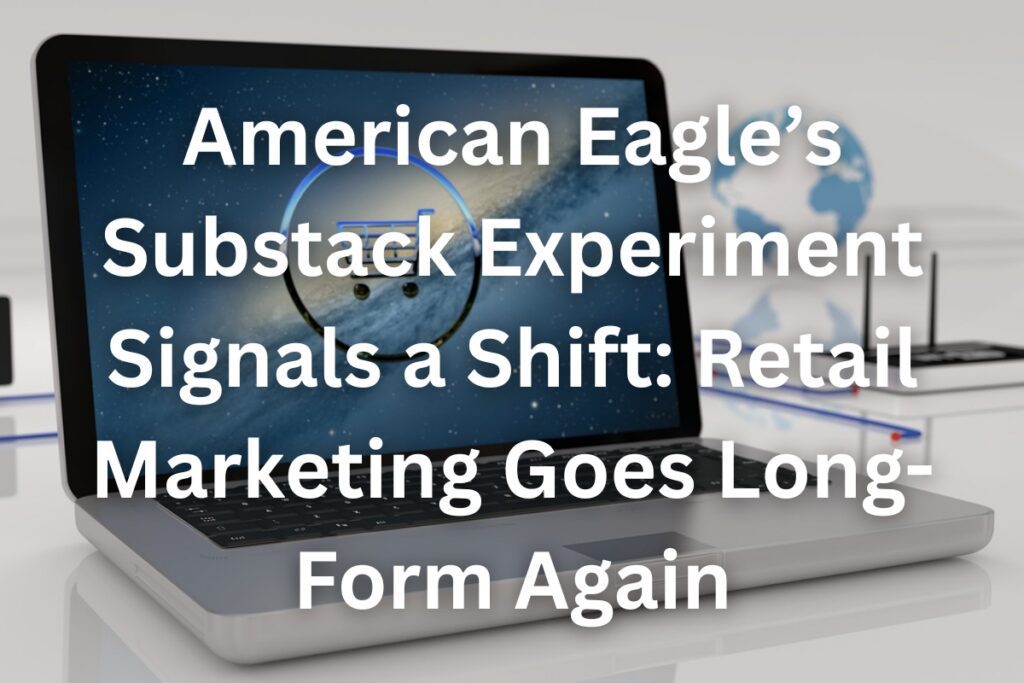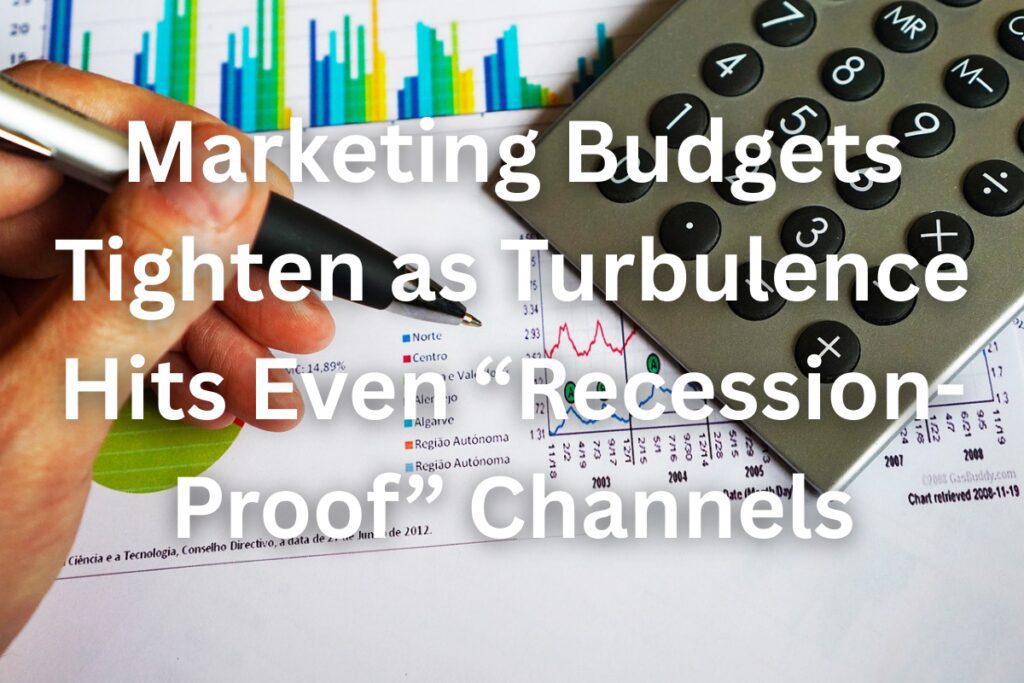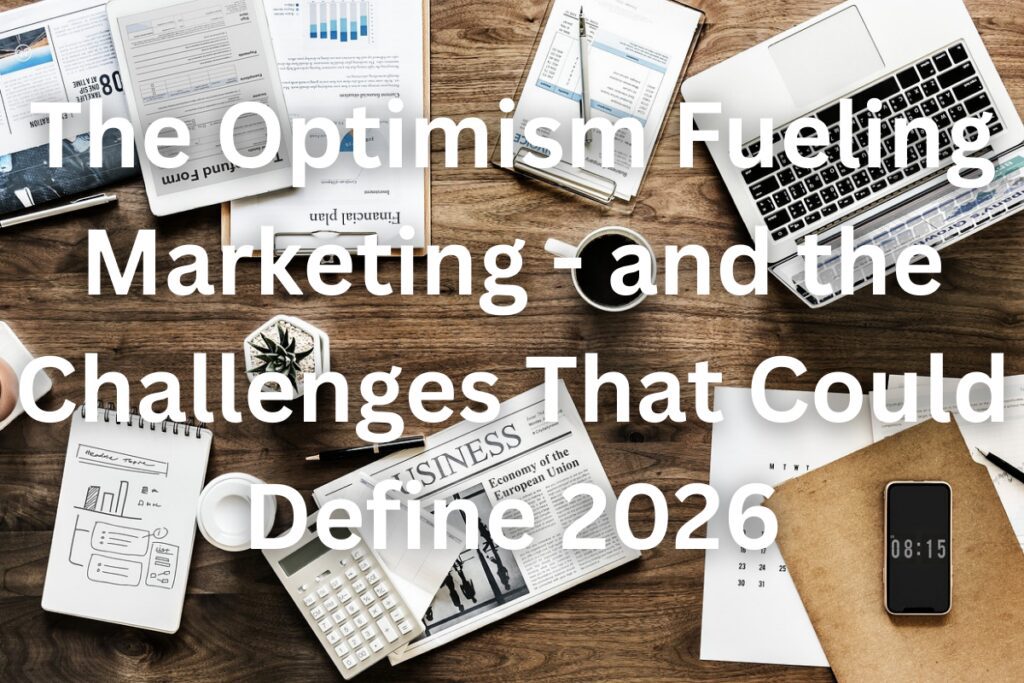In a continuation of its unwavering commitment to supporting women’s sports, Budweiser, a subsidiary of AB InBev, has announced its significant sponsorship of the highly anticipated 2023 Women’s World Cup.
This bold move not only underscores Budweiser’s dedication to empowering female athletes but also aligns with AB InBev’s ongoing efforts to embrace a consumer base that was historically overlooked by many brewers.
Building on past successful partnerships, Budweiser seeks to celebrate the spirit of athleticism, inspire fans, and capture the attention of a global audience.
A Track Record of Support for Women’s Sports
Budweiser’s latest initiative in sponsoring the Women’s World Cup follows a series of impactful endeavours by its parent company, AB InBev, to uplift women’s sports. Last year, AB InBev’s Busch Light brand made headlines by sponsoring every female NASCAR driver aged 21 and older, signalling their commitment to gender equality in the world of motorsports.
Furthermore, in March, Michelob Ultra became the trailblazing major sponsor of the Women’s Sports Network, an ad-supported streaming service dedicated exclusively to women’s sports.
Moreover, AB InBev and Budweiser have further solidified their dedication to women’s soccer by sponsoring individual women’s national teams, including those from the United States, Colombia, and the United Kingdom, lending crucial support to these talented athletes on their journey to excellence.
Sound on 🔊 The FIFA Women's World Cup™ is just four weeks away, join us & Beth Mead @bmeado9 and get behind our @Lionesses 🍻⚽️ #FWWC #Budweiser pic.twitter.com/DXfP4hDEFM
— Budweiser UK (@BudweiserUK) June 22, 2023
Unveiling “The World is Yours to Take” Film
In collaboration with FIFA and the esteemed agency Wieden+Kennedy, Budweiser was set to premiere its highly anticipated film, “The World is Yours to Take,” on its YouTube channel on July 10, just days before the tournament is set to kick off on July 20.
This captivating film was created with the aim to inspire viewers by showcasing the immense talent, perseverance, and determination of female athletes participating in the Women’s World Cup.
Through captivating visuals and a powerful narrative, Budweiser’s film invites fans from around the world to join in celebrating extraordinary moments on the pitch and to embrace the shared spirit of “Bring Home the Bud” in support of their favourite teams.
‘Greatness is hers to take’: Budweiser and Messi rally fans ahead of Women’s World Cup https://t.co/3PDkuU8kQc
— Campaign (@Campaignmag) July 10, 2023
A Legacy of Success Amid Challenges
Budweiser’s initial #BringHomeTheBud campaign made its debut during the 2022 FIFA World Cup in Qatar, with AB InBev taking on a prominent sponsorship role.
Although the campaign faced unforeseen challenges, such as Qatar’s last-minute ban on beer sales at World Cup stadiums just days before the tournament began, it propelled the Budweiser brand to unprecedented success.
Though, despite the obstacles, Budweiser experienced a remarkable doubling of product sales globally during the tournament period, resonating with fans worldwide and solidifying its position as a brand dedicated to uniting people through the love of sports.
Additionally, the campaign also played a pivotal role in increasing brand awareness, fostering a deeper connection between Budweiser and its ever-growing consumer base.
Joining Forces with Other Major Sponsors
The 2023 Women’s World Cup has garnered the attention and support of several prominent brands eager to align themselves with this prestigious global event. In May, Frito-Lay North America announced its partnership as the Official USA Snack of the tournament, marking the company’s largest-ever investment in women’s sports.
With their extensive range of snack products, Frito-Lay aims to enhance the match-day experience for fans and athletes alike. Additionally, automotive giants Hyundai and Kia have reaffirmed their commitment to women’s soccer by assuming the role of Official Mobility Sponsors for the tournament.
What’s more, having sponsored the women’s tournament since 1999 and 2007, respectively, Hyundai and Kia have demonstrated their enduring support for women’s sports and their recognition of the growing influence and significance of the Women’s World Cup.
Advantages of Budweiser’s Marketing Campaign
Budweiser’s marketing campaign for women’s sports brings numerous advantages to the brand. By sponsoring the highly anticipated Women’s World Cup and actively supporting female athletes, Budweiser enjoys heightened brand visibility and recognition on a global scale.
This strategic initiative allows Budweiser to effectively target a niche audience, differentiating itself from competitors and capturing the attention of consumers who value brands that champion gender equality.
Moreover, this campaign enhances Budweiser’s brand reputation by aligning it with values of inclusivity, empowerment, and social responsibility. Through inspiring stories and engaging content, Budweiser forges deep emotional connections with consumers, fostering brand loyalty and advocacy.
Additionally, the campaign’s potential for creative storytelling provides Budweiser with opportunities to create compelling content that resonates with fans worldwide, further solidifying the brand’s position in the market.
Ultimately, this marketing campaign holds the potential to drive business growth by increasing product sales, expanding market share, and opening doors for future partnerships and collaborations.
Potential Disadvantages For The Brand
However, Budweiser’s marketing campaign comes with certain disadvantages that warrant consideration. First, the campaign may face backlash and scepticism from individuals or groups who criticise the involvement of alcohol brands in sports sponsorships, particularly in relation to women’s sports. This can lead to negative perceptions and a potential loss of trust among consumers.
Additionally, the Women’s World Cup attracts multiple sponsors, intensifying competition and making it more challenging for Budweiser to stand out and have a distinct impact. The campaign’s focus on targeting a specific demographic may inadvertently alienate other consumer segments who may not resonate with or support the campaign, potentially limiting Budweiser’s reach.
Furthermore, concerns may also arise about the association of alcohol with sports events, especially when targeting diverse audiences that include underage individuals or individuals who choose not to consume alcohol.
Moreover, major sponsorship deals like the Women’s World Cup require significant financial investment, necessitating a careful assessment of the return on investment in terms of increased brand exposure, sales, and long-term brand loyalty.
Lastly, consumer preferences and attitudes are subject to change, and Budweiser must adapt to evolving expectations to maintain its relevance and avoid any potential backlash. Though, by considering these factors, Budweiser can navigate the potential disadvantages and optimise the effectiveness of its marketing campaign.
Conclusion
As anticipation continues to mount for the highly anticipated 2023 Women’s World Cup, Budweiser’s resolute commitment and significant sponsorship exemplify its unwavering dedication to championing women’s sports on a global stage.
By supporting and empowering female athletes, Budweiser aims to inspire fans worldwide and create a lasting impact within the realm of women’s soccer. With the immense viewership of the Women’s World Cup, which attracted over 1.1 billion people in 2019, Budweiser seeks to amplify the growth and popularity of the sport while inspiring future generations of female athletes.
It is definitely safe today that as the tournament unfolds, Budweiser stands poised to captivate audiences, celebrate exceptional athleticism, and ultimately bring people together through the power of sports.

